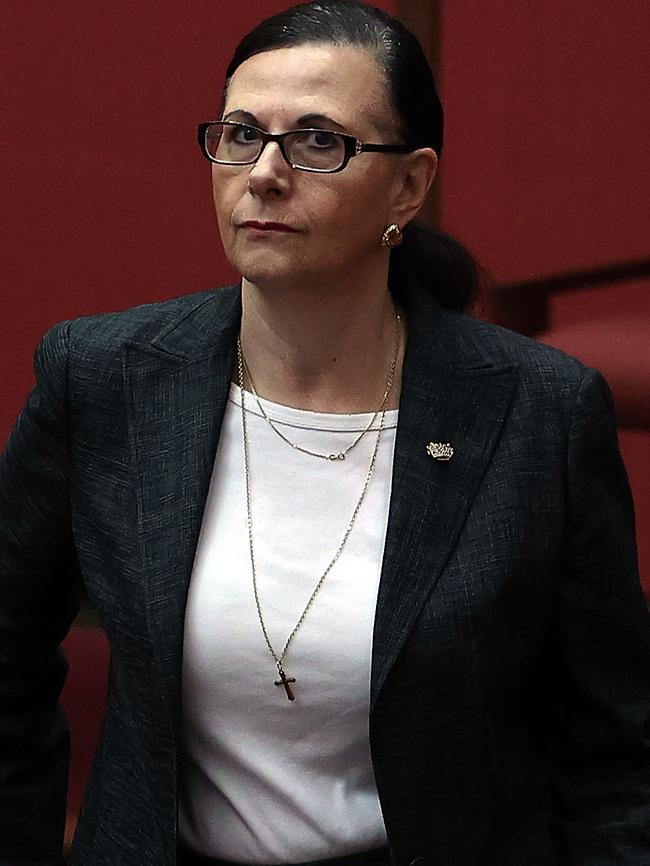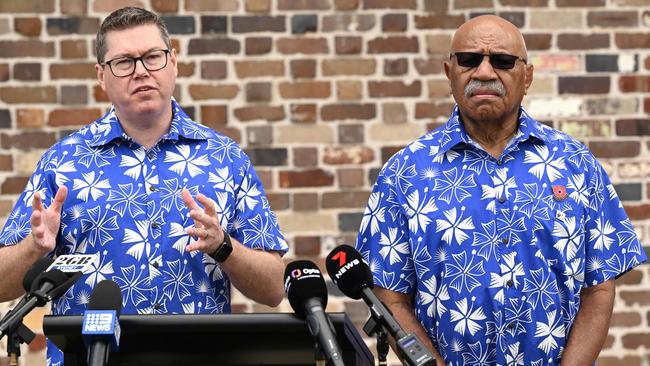Lowy Institute Pacific aid map shows Australia the biggest donor
China’s massive aid spend in the Pacific has prompted serious security concerns – but a new report puts Australia ahead. See where the money goes.
World
Don't miss out on the headlines from World. Followed categories will be added to My News.
China’s aid program to the Pacific is in retreat, dropping 15 per cent from its pre-pandemic level, a new analysis of development funding in the region has revealed.
Concern about the security implications of China buying influence among Pacific Island nations has been high since 2018, when the then Liberal Senator Concetta Fierrvanti-Wells called out Beijing’s construction of “useless buildings” and “roads to nowhere” in the Pacific.
The defence concerns appeared to be realised in 2022, when the Solomon Islands announced it had struck a new security deal with China.
But a new edition of the Lowy Institute’s Pacific Aid Map, released on Tuesday, found China’s aid to the region was in “retreat”, dropping from a pre-pandemic historical average of $US285 million ($A449 million) per year to $US241 million ($A380 million) in 2021.


Australia was now the dominant provider of aid to the region, and is now supplying 40 per cent of official development finance for the Pacific, after a “dramatic” increase in its support in 2021, the Institute found.
Australia was “winning the war for aid in the Pacific,” Pacific Aid Map Project Director Alexandre Dayant said.
The aid map shows Australia now supplies 61 per cent of all aid to the Solomon Islands, 55 per cent to Papua New Guinea, 32 per cent to Vanuatu and 28 per cent to Fiji.
China remains the top donor to Tonga, Tuvalu and Palau.
“China reached its peak in terms of aid in 2016,” Mr Dayant said.
“Since then it’s been going down; every year Chinese aid is lower than it was the previous year.”
There are several likely factors behind the reduced spend from Beijing.

“On the supply side, China is facing an economic slowdown, so they might be more interested in spending domestically rather than abroad,” Mr Dayant said.
“But on the demand side the Pacific countries have woken up to the fact that the Chinese [loans] can be more expensive than the debts they could take from Japan or Australia, for instance.
“The big narrative of the debt trap diplomacy in the Pacific, the roads to nowhere and the white elephants … all that has played on the Pacific demand for Chinese loans, and they reduced quite a bit,” Mr Dayant said.
While some aid donors and lenders are renowned for sticking their flag on bits of infrastructure, Mr Dayant said, Australia’s aid approach was more about providing budget support with a “reform matrix” included, which was often “a better way to influence countries”.
The Minister for International Development and the Pacific, Pat Conroy, touched on this in a speech in Melbourne earlier this month, saying Australia was “open and upfront with our neighbours” that climate change, gender equality and disability equity were key priority areas in its disbursement of aid.
It comes as NRL bosses are reportedly in talks with the Australian Government over a $600 million plan for a team based in Papua New Guinea.
A Port Moresby side is seen as a way to further counter China’s grip on the Pacific.





